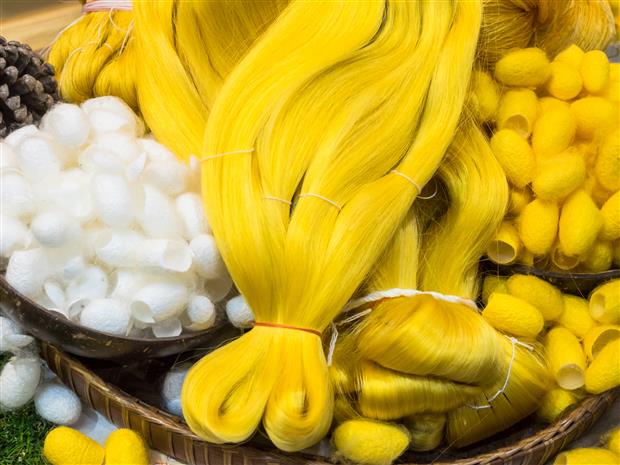A brief COEX guide to natural fibres, helping you stay healthy and comfortable whatever the weather!
We continue the conversation on natural fibres, which we started in our previous COEX blog post. COEX is our natural “ally” made of 100% plant fibres, which naturally offers comfort and safety and is 100% fireproof.
Not everyone is privy to the fact that clothing can also be made from sustainable fibres such as bamboo, soy and milk. Fibres of this type are best suited to lower temperatures.
ANTIBACTERIAL BAMBOO
Bamboo’s myriad properties make it a pioneering sustainable fibre: it is breathable, absorbent and, most importantly, hypoallergenic and antimicrobial, making it particularly suitable for sensitive skin and allergy sufferers. A bio agent present within its molecular structure called bamboo-kun gives bamboo its first-rate antibacterial properties (even after numerous washes) and makes it mite- and moth-proof. Its natural hygienic properties and freshness make it a popular choice for underwear, it is also stretchy and UV resistant.
SOY, VEGETABLE CASHMERE
Soy-based fabrics are incredibly soft and pleasing to the touch, which is why soy has acquired the name “vegetable cashmere”. Like bamboo, soy also has antibacterial qualities, as well as being breathable, resistant to UV radiation and even biodegradable.
MILK FIBRE
Milk fibre is made from extruded casein, a milk protein. Lighter than silk, it also acts as an excellent thermal insulator. Its thermoregulatory capacity enables it to rapidly absorb sweat, leaving the skin fresh and dry. Besides being extremely breathable, it is hypoallergenic and antibacterial (it has excellent bactericidal properties) and is biodegradable. Most importantly though, the amino acids in the fibre have a surprising moisturising effect and protect even the most sensitive of skins.
SILK REGULATES TEMPERATURE
Like wool, silk offers excellent thermoregulation, even in high humidity. Unlike synthetic and plant-based fabrics (such as cotton, linen and hemp, which can be made fireproof using COEX technology, absorbed sweat never cools down and therefore does not stimulate a rise in body temperature. Silk’s powers of insulation keep you cool in the heat and warm when it’s cold. This makes it the ideal fabric for children who do not always know how to express their needs and whose temperature changes regularly for a variety of reasons.

THE SOFTNESS OF WOOL
Wool is the oldest natural textile fibre and is generally very stretchy and remarkably resistant. It is made up of 85% of protein from the keratin family, which gives it its softness and elasticity; 1-2% of lanolin, a fatty substance derived from the animal’s epidermis which gives it a light yellow colour; and 12% from other proteins. It is also a fibre with many properties: it has excellent thermoregulation properties and is hygroscopic (absorbs moisture), breathable, flame-resistant and water-repellent.
It is produced mainly by sheep and goats (Sheep, Merino sheep, Tibetan goat and Angora goat), camelids (camel, dromedary, llama, alpaca and vicuña) and cattle (Tibetan ox and Yack).
Last but not least, we have the softest and finest “wools”: including merino wool, which is a particularly lightweight but very hardwearing sheep’s wool. Cashmere comes from Tibetan goat hair and, because it is fine, light and very soft, is considered a luxury. Another luxury fibre is Mohair, from the fleece of the Angora goat.
Alpaca wool, which comes from the camelid family, is extremely soft and remarkably strong. It does not contain any lanolin so it does not become felted or cause allergies. Lastly, lamb’s wool is obtained by shearing the lamb: its fibres are less resistant but very soft. In respect of shearing, it should be noted that the term “pure virgin wool” refers to a product made exclusively with new wool fibres, which have therefore not been industrially reclaimed or reprocessed.
Knowing about and wearing natural fibres is just the start, the next step is to choose COEX made fabrics: a combination of nature and safety.
